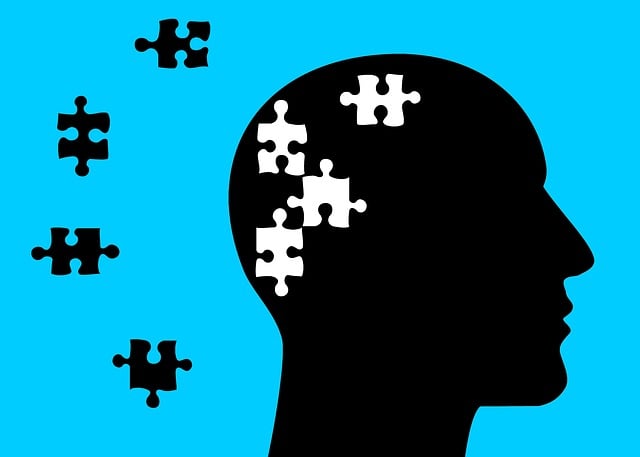Positive thinking exercises, including self-awareness and affirmations, empower young minds to cope with spiritual-religious questions, enhancing emotional resilience and self-esteem. Addressing these issues early, through non-judgmental environments and tailored trauma support, is vital for healthy development. Daily routines incorporating mindfulness, art therapy, or journaling provide effective therapy, teaching coping mechanisms and fostering optimism. Tailoring strategies based on individual progress, cultural background, and feedback ensures holistic well-being, with flexible adjustments to meet evolving needs.
Positive thinking exercises offer a powerful tool for fostering mental well-being in young minds. This comprehensive guide explores how such practices can mitigate stress and enhance resilience, especially in addressing spiritual-religious issues prevalent in children. From understanding the impact of positive thinking to integrating exercises into daily routines, we provide actionable strategies. We also suggest activities that encourage spiritual growth while offering tips for tracking progress and adjusting approaches for optimal child development. Discover how this therapy empowers young children.
- Understanding Positive Thinking and Its Impact on Young Minds
- Identifying Spiritual-Religious Issues in Children
- Integrating Positive Thinking Exercises into Daily Routines
- Choosing Activities That Foster Spiritual Growth
- Tracking Progress and Adjusting Strategies for Optimal Well-being
Understanding Positive Thinking and Its Impact on Young Minds

Positive thinking is a powerful tool that can significantly shape the development of young minds. When implemented as an exercise, it becomes a therapeutic approach to enhancing self-awareness and fostering emotional resilience in children. By encouraging positive affirmations and reframing negative thoughts, young individuals can learn to navigate their feelings more effectively. This strategy is particularly beneficial for addressing spiritual-religious issues that may arise during childhood, promoting healthier mental habits.
Self-Awareness Exercises play a pivotal role in this process, allowing children to recognize their emotions and interpret them from a positive perspective. Furthermore, such exercises contribute to Self-Esteem Improvement by helping kids develop a more optimistic view of themselves and their capabilities. Ultimately, these practices aim to enable emotional regulation, equipping young minds with the skills to manage stress and maintain a hopeful outlook despite challenges.
Identifying Spiritual-Religious Issues in Children

Many young children may have spiritual or religious questions and beliefs that can impact their mental health and overall well-being. Identifying and addressing these issues is crucial for a child’s healthy development, especially when seeking therapy for young children. Parents, caregivers, and healthcare providers must be attuned to signs of distress related to spiritual-religious matters, as these concerns can sometimes be overlooked or misunderstood.
Raising awareness through public campaigns and providing education on cultural competency training for healthcare professionals can help in recognizing and supporting children with diverse spiritual backgrounds. It is essential to create a safe and non-judgmental environment where kids feel comfortable exploring their questions and beliefs. Trauma support services tailored to these needs can also be life-changing, fostering resilience and healthy coping mechanisms.
Integrating Positive Thinking Exercises into Daily Routines

Incorporating positive thinking exercises into daily routines can be a powerful tool for young children, offering a simple yet effective approach to addressing spiritual-religious issues and enhancing overall well-being. These practices serve as a form of therapy, aiding in mood management and fostering empathy within the child. By integrating these exercises into their regular schedules, parents and caregivers can provide much-needed crisis intervention guidance while promoting resilience and positive mental health.
Whether it’s a few minutes of gratitude practice before bedtime or mindful activities during playtime, such routines create consistent moments for emotional reflection and growth. This continuity is crucial in building empathy, as children learn to recognize and respond to their own emotions and those of others. As they develop these skills, they become better equipped to navigate life’s challenges with a sense of calm and optimism.
Choosing Activities That Foster Spiritual Growth

Incorporating spiritual practices into daily routines can be a powerful tool for young children’s therapy, offering a unique approach to address spiritual-religious issues and enhance mental wellness. Activities that foster spiritual growth should be carefully selected based on each child’s interests, cultural background, and personal beliefs. For instance, mindfulness exercises, such as nature walks or guided meditation, can help kids connect with their surroundings and develop a deeper sense of calm, thereby aiding in mood management. These practices not only promote mental illness stigma reduction efforts but also teach children valuable coping mechanisms for dealing with stress and anxiety.
Additionally, creative outlets like art therapy or journaling can serve as a means to express emotions and explore personal beliefs. Engaging in these activities allows children to process their thoughts and feelings, fostering spiritual awareness and resilience. By incorporating such exercises into therapy sessions, mental health professionals can provide comprehensive support, addressing both the mind and spirit, ultimately contributing to the holistic development of young individuals.
Tracking Progress and Adjusting Strategies for Optimal Well-being

Tracking progress is a vital aspect of any positive thinking exercise implementation, especially when tailored for young children navigating spiritual-religious issues. Parents and caregivers can use simple tools like daily journaling or weekly check-ins to monitor their child’s emotional state, identifying patterns and triggers that might hinder progress. This data allows them to adjust strategies accordingly, ensuring that the approach remains effective and aligned with the child’s evolving needs. For instance, if a particular activity or discussion topic consistently leads to anxiety, it may be time to explore alternative methods or delve into different aspects of their spiritual journey.
The process of adjusting strategies requires flexibility and an understanding that one-size-fits-all approaches rarely work in therapy, especially for young minds. Incorporating feedback from both the child and their support network is essential. This might involve modifying the frequency or intensity of exercises, introducing new activities to spark positive thoughts, or even integrating elements from different therapeutic modalities. By doing so, mental health education programs designed for this demographic can be tailored to foster resilience and optimal well-being, taking into consideration individual risk factors and leveraging professional development opportunities in mental wellness coaching.
Positive thinking exercises, when seamlessly integrated into daily routines, can significantly benefit young minds, addressing both psychological and spiritual-religious issues. By understanding the impact of positive thinking on children’s well-being, parents and educators can create a supportive environment that fosters growth and resilience. Regular tracking of progress allows for adjustments in strategies, ensuring optimal emotional and mental health outcomes for therapy in young children.














